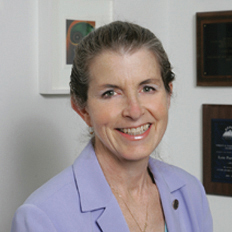The final word: Council on Ethical and Judicial Affairs studies physician-assisted death
CMS Board votes to study issue further, educate members
by Lynn Parry, MD, CEJA Vice-chair

Physician aid in dying is, without a doubt, a difficult subject for our profession. That’s why when CMS leadership heard discussion around the issue growing louder in the political and public realms, the board of directors asked the members of the CMS Council on Ethical and Judicial Affairs (CEJA) to carefully consider the issue of physician-assisted end-of-life termination and develop a recommendation to bring back to the board in March as to whether CMS should change existing policy that opposes the practice.
To inform our discussion, CEJA sought input from physicians who specialize in palliative care, as well as attorneys, clergy and individuals representing patient organizations. We also reviewed the laws and experiences from the five state laws that currently allow the practice (referred to as physician-assisted suicide, or PAS, in our report). In addition, we also studied AMA ethical guidelines and the most current literature, and referred to the four fundamental principles of physician ethical responsibilities.
Perhaps the most informative were the results of the February 2016 CMS all-member survey. CMS retained Kupersmit Research to design and administer the survey. All members were invited to participate in focus groups to assist the pollster in the survey’s drafting and the overwhelming response allowed for three separate groups plus a fourth with CEJA members. CEJA reviewed the draft survey before it was distributed in early February to all CMS members with an email address on file. A record-setting 631 physicians completed the survey in slightly less than two weeks, the most in such a short period of time since CMS began surveying members in 2008.
CEJA then posed and answered the following questions.
- What are the ethical and clinical guidelines/parameters/safeguards that should guide physicians and patients where adults in Colorado could obtain and use prescriptions from their physicians for self-administered, lethal doses of medications?
- If it becomes apparent that the issue will become law in the near term should CMS oppose the proposal, support the proposal or be neutral on the proposal and work for patient and physician safeguards that reflect the ethical and clinical guidelines/parameters/safeguards established by CEJA?
- How, if at all, should current CMS policy be amended?
In answering the first question, we defined the qualifications of a patient and made recommendations to hold physicians harmless. To the second question, CEJA felt that CMS should be neutral, with qualifications. And to the last question, CEJA felt that CMS policy should be amended in a manner that does not formally take a strong position for or against physician-assisted suicide but rather infers a position of thoughtful, studied neutrality.
CEJA recommended that CMS policy:
- Stress the need for increasing awareness among physicians and the public around end-of-life issues and the importance of palliative or hospice care.
- Ensure there are adequate protections in state law or in a constitutional amendment for both physicians and patients should such a system be approved by voters or the legislature in the future.
- Allow options for patients and physicians to pursue mutually acceptable approaches without violating any party’s fundamental values.
- Substitute PAS with the term Physician-Assisted Death (PAD).
I presented the full report to the CMS Board of Directors at the March meeting. Board members were also informed of the current political landscape and reviewed the results of the all-member survey and member feedback after the survey.
After extensive discussion, the board moved to do the following:
- Circulate the CEJA report to the entire membership, including component and specialty societies, and urge peer-to-peer discussion and further input to CEJA.
- Refer the report back to CEJA to incorporate the recommendations into the policy language and to consider additional member input.
- Ask the Re-engineering the Annual Meeting Work Group to hold an educational session on physician-assisted death at the Annual Meeting in September.
- Put the report and recommendations through the virtual policy forum before the November board vote so that the entire membership will have an opportunity to participate.
I am proud of our CMS leadership for giving the members of CEJA and our membership the time and the resources to fully explore our own individual and collective attitudes. The members of CEJA have been extraordinary in their ability to craft an approach that respects physicians and protects patients if PAD acquires legal status in Colorado. Please read CEJA’s report in its entirety by visiting www.cms.org.
Posted in: Colorado Medicine | Final Word

Comments
Please sign in to view or post comments.